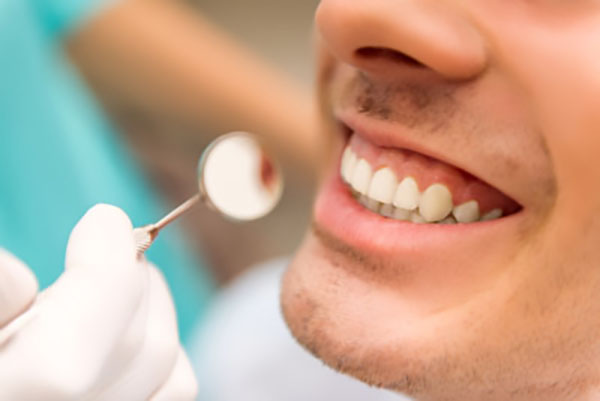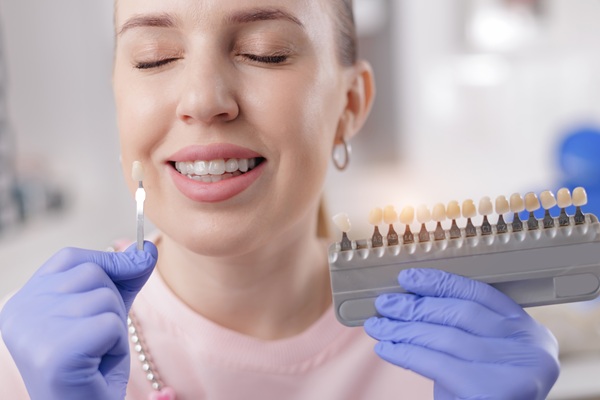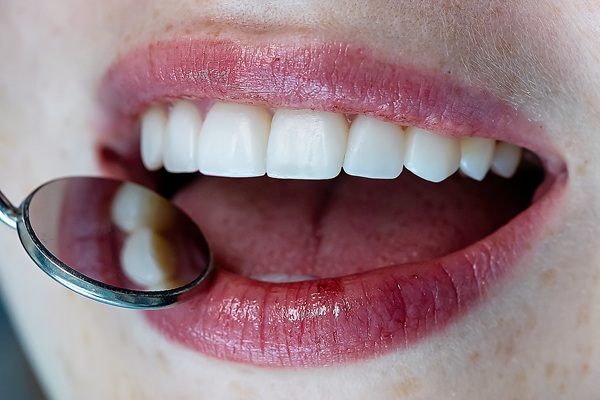What Is Composite Bonding in Cosmetic Dentistry?

Cosmetic dentistry focuses on the form and function of teeth, despite the misconception that cosmetic procedures only address aesthetics. Cosmetic dentists are dental professionals who undergo general dentistry training and then further their education and training by learning more about cosmetic procedures.
Many general and cosmetic dentists perform the same procedures, depending on the goal of the patient, as well as their oral health history. One popular cosmetic dentistry procedure that general dentists also perform is the placement of composite bonding.
How composite bonding is used in cosmetic dentistry
Below is an overview of composite bonding and how it is used in cosmetic dentistry. When looking into different cosmetic procedures, it can be helpful to review the following information.
Composite bonding
Composite bonding is a cosmetic dentistry procedure that can also be used for general dentistry purposes. It is one of the simplest procedures that can produce transformative results.
During the procedure, the cosmetic dentist will gently etch the natural tooth so the resin will bond to it. Then, a dental resin will be gently applied to the etched tooth, which will be white in color, thus helping improve the way that the tooth appears. Once the resin has been placed, the cosmetic dentist will use a dental instrument to shape and mold the resin to the tooth, smoothing out any imperfections. To complete the procedure, a curing light will be used to harden the resin material.
Uses in cosmetic dentistry
Cosmetic dentistry procedures are typically explored to improve the way that the teeth appear. Composite bonding, in particular, is a great way to do so. Outlined below are a few popular uses for composite bonding in cosmetic dentistry.
- Covering stains
- Covering rough spots
- Repairing chips or cracks
- Lengthening teeth that are too short
- Filling in extremely minor gaps
- Covering spots after cavity repair
Composite bonding is a versatile procedure that can be used in both cosmetic and general dentistry. Cosmetic dentists use it more for improving the appearance of imperfect teeth, whereas a general dentist may use it to repair damages.
Benefits
Cosmetic dentistry offers most individuals a number of benefits, with a major one being a smile improvement. However, other benefits include the following:
- A composite bonding procedure is quick and usually complete in under an hour
- There is no recovery time
- The procedure is safe because there are no invasive risks
- It is long-lasting
- There is no pain associated with composite bonding
- Only one application is typically necessary to address the problem or imperfection
There may be other patient-specific benefits that can be identified during a consultation appointment.
Find out more about composite bonding
Cosmetic dentistry includes a wide range of procedures, some of which overlap with general dentistry. To find out more about smile improvement through composite bonding or other cosmetic procedures, reach out today. Any outstanding questions can be answered, and an evaluation can be done in order to determine the appropriate course of action.
Request an appointment here: https://www.yanasedds.com or call Yanase Dental Group at (310) 736-1063 for an appointment in our Torrance office.
Check out what others are saying about our services on Yelp: Read our Yelp reviews.
Recent Posts
Dental veneers can improve the shape, color, or symmetry of the smile in a way that looks natural. These thin restorations are bonded to the front of the teeth to enhance appearance while maintaining a natural feel. Available in both composite and porcelain materials, veneers are selected based on aesthetic goals, treatment timeline, and lifestyle.Composite…
A prosthodontist is a dental specialist who focuses on restoring and replacing teeth to improve oral function, health, and aesthetics. While a general dentist can handle many common dental health and cosmetic issues, a prosthodontist is an expert in restoring a smile's form and function. Understanding their unique training and knowledge offers insight into when…
An emergency dentist can be a reassuring source of professional care in moments of sudden dental pain, injury, or complications. Addressing unexpected problems promptly helps prevent further damage and protect oral health. Having a clear plan and following expert recommendations will make managing stressful dental emergencies easier, maintain healthy teeth and gums, and reduce the…
Dentures provide a functional and aesthetic solution for people missing multiple teeth. However, proper denture care is essential to ensuring comfort, durability, and oral health. People with new dentures must establish a consistent cleaning routine and learn how to handle them carefully. Without proper maintenance, dentures can become uncomfortable, harbor harmful bacteria, or wear out…


